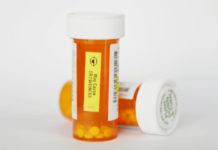Government and healthcare officials have been discussing ways in which to bolster substance abuse treatment in Harrisburg and other areas of Pennsylvania. Legislative measures and events held in the State Capitol this month focused on ways to combat the opioid crisis.
At the beginning of October, a hearing was held to inform the public on the stigma directed toward persons with substance use disorders. The meeting was a part of an ongoing series called the ‘State of Addiction’ sponsored by the Center for Rural Pennsylvania. Healthcare and government officials in attendance promoted different ways to destigmatize addiction. Representatives also emphasized the importance of administering naloxone to people who have overdosed multiple times.
The following week, Gov. Tom Wolf announced that Pennsylvania legislature had facilitated an agreement with seven of the state’s commercial healthcare insurance companies. The agreement will realign prior-authorization requirements for patients who struggle with substance use disorders and increase access to medication-assisted treatment (MAT) including naltrexone, methadone and one buprenorphine-naloxone combination product. However, the guidelines do not apply to self-funded plans.
Multiple government officials, healthcare and substance abuse treatment specialists — including members of the state’s Department of Human Services (DHS) and Department of Health — have applauded the news, stating that the increased access to MAT will help battle Pennsylvania’s opioid crisis.
Gov. Wolf also passed a number of bills this month, including one that received much public scrutiny. Senate Bill 6 of the 2017-2018 regular session, also known as the Public Assistance Integrity Act, amends the 1967 Human Services Code. The act concerns public welfare ordinance and includes restrictions for sexual offenders and individuals convicted of a drug-related crime. In addition, the bill will introduce new welfare eligibility requirements.
Critics of the bill claim that certain provisions would place a 10-year ban on Temporary Assistance for Needy Families for residents with drug-related convictions. In addition, others noted how the bill would negatively affect mothers on welfare and limit access to substance abuse treatment services.
Gov. Wolf initially considered vetoing the proposed bill; however, he signed it into law after lawmakers incorporated additional amendments that would ensure Pennsylvania public benefit requirements will be consistent with federal law. The governor clarified that he generally opposes laws that limit public access to assistance benefits and healthcare plans that do not protect individuals with pre-existing conditions.
In an effort to assist people affected by the opioid epidemic, Gov. Wolf also announced the new Request for Applications program on October 17. The program will utilize $15 million of a $55.9 million Substance Abuse and Mental Health Services Administration grant to secure housing for people with opioid use disorders. The Pennsylvania Department of Drug and Alcohol Programs and DHS partnered with multiple state agencies to enact the program in different counties.
Dauphin County, where Harrisburg is located, experienced 287 drug-related overdose deaths since 2016, according to preliminary data from OverdoseFreePA, Individuals within the 25-34, 35-44 and 44-54 age demographics accounted for more than 75 percent of overdose fatalities during this period. Fentanyl, ethanol and heroin were present in approximately 80 percent of cases.

















